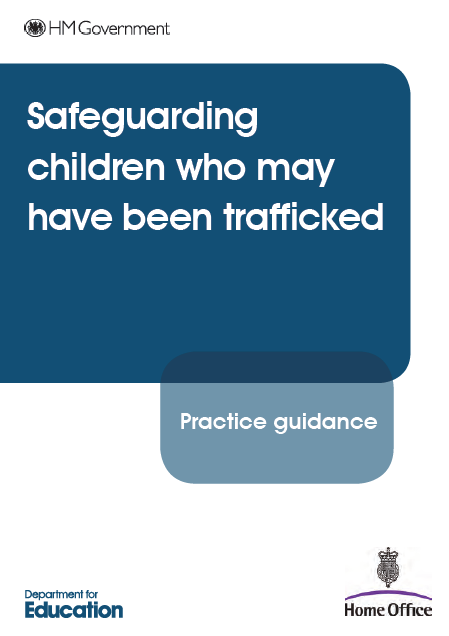
Safeguarding children who may have been trafficked : practice guidance
Auteurs : United Kingdom Home Office
Child trafficking is a very serious issue which can have a devastating and lasting impact on its victims. Children can be trafficked into, within and out of the UK. The Government is absolutely committed to tackling this issue and in July 2011 published a new Human Trafficking Strategy for the UK which sets out the steps it will take together with the action needed and responsibilities of a whole range of partners who also have roles to play.
The Government’s ratification of the Council of Europe Convention on Action Against the Trafficking in Human Beings on 17 December 2008 was a major step in enhancing the UK’s commitment and capability to combat human trafficking. The Government aims to continue to build on this and has applied to opt in to the EU Directive on Human Trafficking and work with other countries in Europe and internationally to drive up standards in tackling trafficking. It will also work to prevent and reduce human trafficking to the UK and to ensure trafficking victims receive the help and support they need.
This non-statutory good practice guidance is for agencies in England which are likely to encounter, or have referred to them, children and young people who may have been trafficked. It is intended to help agencies safeguard and promote the welfare of children who may have been trafficked. It is supplementary to, and should be used in conjunction with, the Government’s statutory guidance, Working Together to Safeguard Children (2010). All local procedures developed to safeguard trafficked children should be consistent with Working Together to Safeguard Children.
Thématiques
- Mécanisme National d’Orientation des victimes
- Mesures spécifiques pour les enfants
- Violences à l’égard des enfants
Population Ciblée
- Enfants
- Professionnels en lien avec la lutte contre la traite
Focus géographique
- Royaume-Uni

